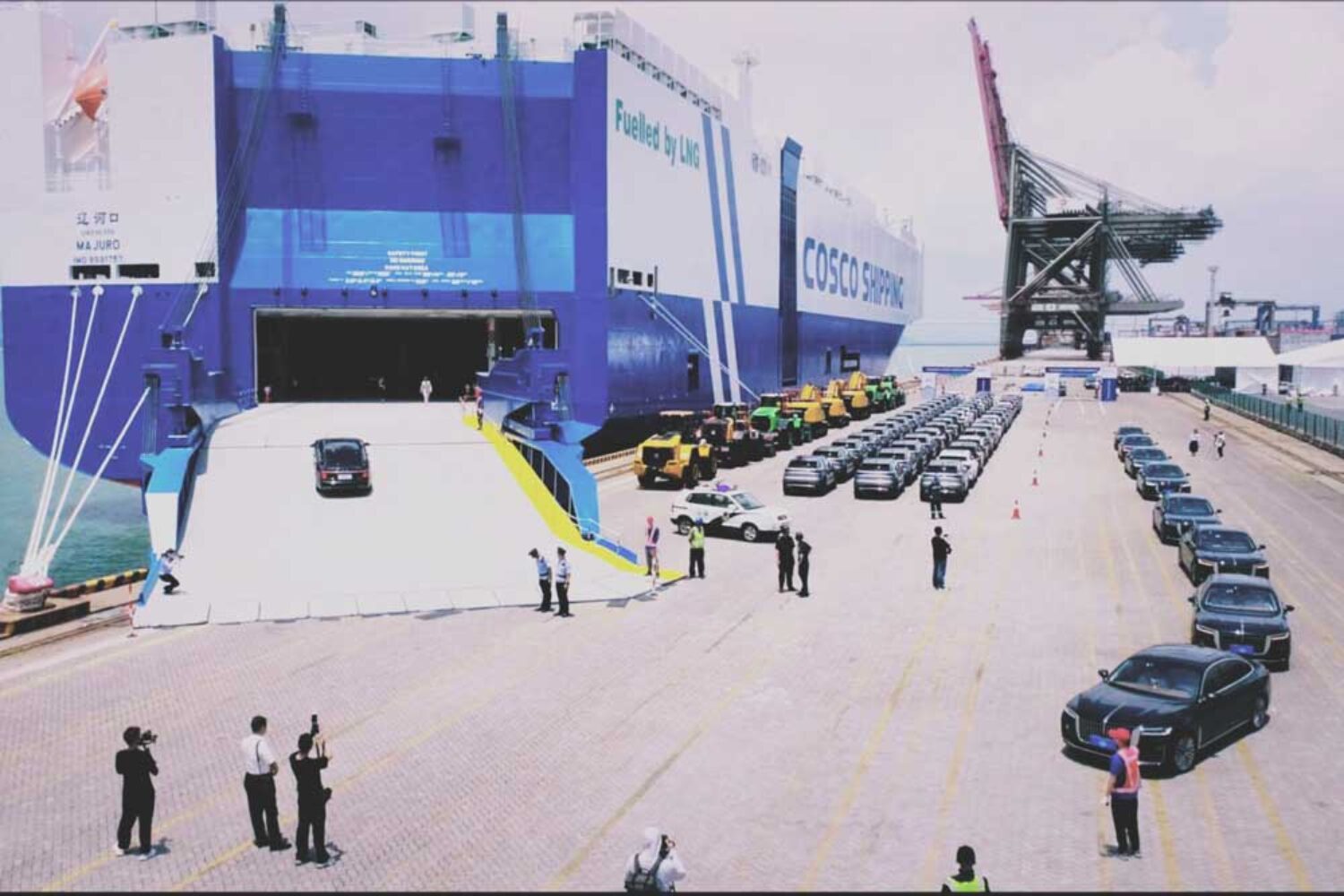The record-breaking car carrier “Liao He Kou” set sail on its maiden voyage to Europe. The LNG-powered ship, together with its sister “Min Jiang Kou”, is currently the largest RoRo carrier in the world.
The dual-fuel ships have 13 decks, four of which are movable, and have a capacity of 7,500 CEU. They were designed by the Shanghai Ship Design Institute and built by the Fujian Shipbuilding Industry Group.
The “Liao He Kou” will ship around 5,400 vehicles of several Chinese brands to Vlissingen in the Netherlands and to Bremerhaven.
As the Chinese state shipping company explained, the two ships will meet the emission standards of the International Maritime Organization (IMO) thanks to their LNG twin propulsion and modern technology.
“Compared to conventional RoRo ships, around 20% of energy consumption can be saved,” according to a statement from Cosco. The ships would also save 27% of CO2 and more than 90% of particulate matter emissions. For sulphide, the figure is even said to be 99%. “Taking a typical China-Europe round trip as an example, the use of LNG as an alternative fuel can reduce CO2 emissions by more than 2,100 tons per trip, which is equivalent to the amount of CO2 absorbed by 10,000 mature trees in 20 years.”
Cosco expands RoRo fleet
The new ships also make it possible to monitor the status and exact position of the vehicles during the entire crossing, Cosco continues. This means that customers always know where their goods are.
Cosco’s car transporter fleet is set to grow even further in the future. Via the joint venture Guangzhou Yuanhai Automobile Shipping, the shipping company has ordered 24 dual-fuel vessels, each with a capacity of between 7,000 and 8,600 CEU. The fleet is, therefore, expected to grow to almost 30 LNG car carriers by 2026.
There is currently a lot of movement in the carrier market. Not only has Cosco ordered newbuilds, but Wallenius Wilhelmsen, Höegh and Hyundai, among others, are also getting new, significantly larger freighters. The demand for tonnage is high and the fleet is relatively old.













